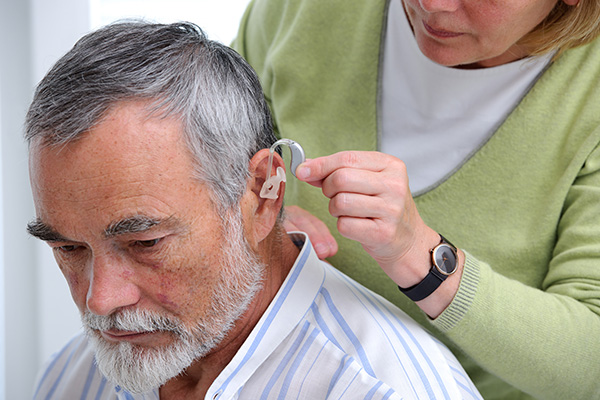How Does an Audiologist Conduct a Hearing Test?
A hearing test gives you the opportunity to determine whether you’re

We all have earwax. It plays an important role in the ear, trapping dust, debris and bacteria and helping the ear dispose of it. However, when does earwax become a problem? When do you need your audiologist to clean it out for you? Here, we’re going to ask a few questions that can help you determine when it’s time to make an appointment for ear cleaning.
One of the first and most obvious symptoms of an earwax blockage is that your ear feels blocked like it has something in it. First of all, try taking a warm shower. The heat can cause the wax to break down and drain out of the ear, at which point you can simply wipe it away with a warm towel. If that doesn’t work, your audiologist will be able to help.
You might not experience a sensation of fullness or blockage in the ear, but ear wax impactions can also cause some changes to your hearing. Sounds can feel warped, distorted, or muffled even if the ear isn’t completely blocked. Furthermore, you might experience tinnitus, which is a ringing or pulsing sound in your ear that has no seeming external cause. Your audiologist will take a look inside the ear with an otoscope to see whether or not wax is causing the issue, but you may also need a hearing exam if there is no wax.
If you have any of the symptoms above and you feel nauseous, like your ear is irritated or itchy, then it could be the first sign of an infection caused by an earwax blockage. This is also true of feeling sharp pains in your ear. The sooner you see your audiologist, the better. Furthermore, if you experience any dizziness, it could be a sign that earwax is affecting your middle ear, which can also affect your balance. Don’t hesitate to call your audiologist for an appointment. These are considered severe symptoms and should be treated as soon as possible.
This may not be your first blockage. Some people are at greater risk of experiencing more regularly. We are more prone to them as we age, and people who wear hearing aids and other devices in their ears may produce more wax as a result. If that’s the case, then one to two appointments for an ear cleaning a year can help prevent and treat blockages. Be sure to tell your audiologist if you have had any other recent blockages, even if they eventually seemingly cleared up on their own.
If you need an ear cleaning, your audiologist is the best person to provide it. Other methods like using cotton buds or ear candles can be dangerous, leading to risks of infection and damage to the inner ear. Making an appointment with a licensed professional is the much safer and much more effective route.

A hearing test gives you the opportunity to determine whether you’re

Do you find that you often have to ask for people to repeat what they are

Hearing loss is something that affects around 20% of the population of the